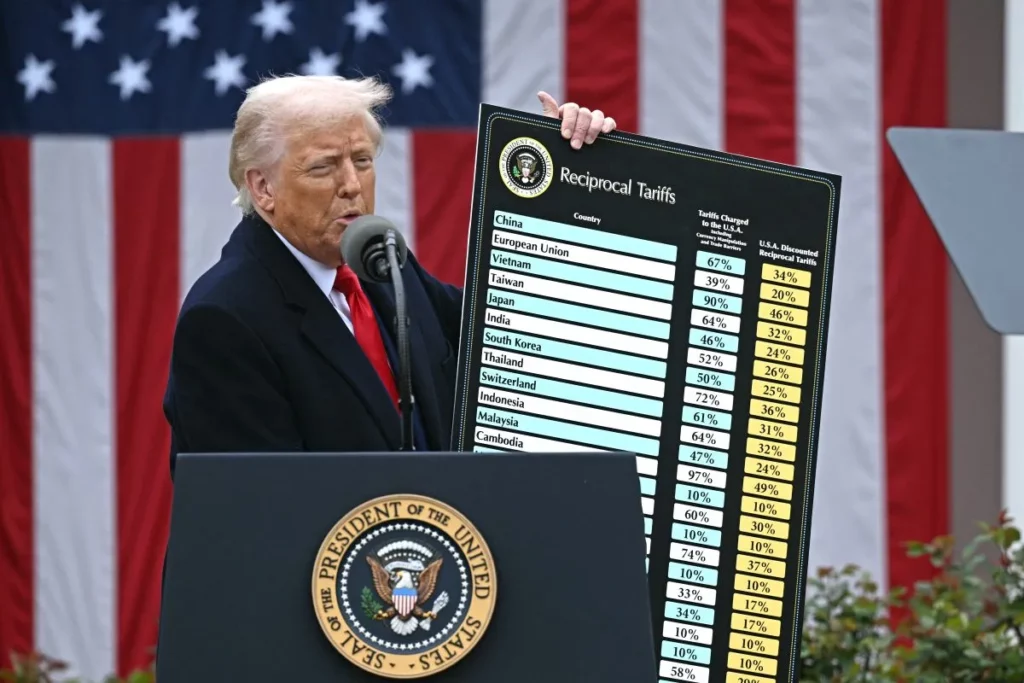President Donald J. Trump’s ‘Liberation Day‘ address on April 2, 2025, introduced a series of sweeping tariffs aimed at recalibrating global trade relationships in favor of national sovereignty and reciprocal trade agreements. Framed as a correction to decades of what Trump described as “unfair trade practices,” the speech sent immediate shockwaves through international markets.
The president ended the “globalist consensus,” replacing it with a new era of bilateralism grounded in fairness, accountability, and mutual economic respect.
The announcement has elicited strong and varied responses from nations across Europe, Asia, Africa, and the Americas. Leaders, economists, and industry stakeholders are now grappling with the implications for supply chains, national economies, and geopolitical alliances.
For some, it is a clarion call to industrial independence; for others, it threatens the current global order.
Highlights
- President Trump announced significant tariffs targeting multiple countries to correct perceived trade imbalances.
- European Union leaders condemned the tariffs, labeling them as “brutal and unfounded.”
- Asian nations, including China and Japan, expressed strong opposition and hinted at possible retaliatory measures.
- African countries, notably Lesotho, face some of the highest tariffs, prompting concerns about economic impacts.
- Latin American countries are assessing the potential effects on their exports and considering responses.
Europe: Unified Condemnation and Calls for Retaliation
European leaders have expressed strong opposition to the newly imposed tariffs. French President Emmanuel Macron described the measures as “brutal and unfounded,” suggesting that France might suspend investments in the U.S. and consider implementing a digital services tax targeting American tech firms.
European Commission President Ursula von der Leyen stated that the EU feels “let down by our oldest ally” and emphasized that the bloc is “prepared to respond” (Politico).
Germany’s Economics Minister Robert Habeck dubbed the day of the announcement as “inflation day,” forecasting significant economic repercussions for both the U.S. and its trade partners (Wall Street Journal).
Asia: Strong Opposition and Potential Retaliation
In Asia, the response has been one of strong opposition. China, facing a combined tariff of 54%, labeled the tariffs as protectionist and harmful, warning of global economic consequences and potential inflation (New York Post).
Japan and Australia also expressed strong disapproval, with Japan hinting at possible retaliatory measures. Emerging economies in Southeast Asia, such as Cambodia, Laos, Vietnam, and Myanmar, are particularly hard-hit, with tariffs exceeding 40%, raising concerns about severe impacts on their export-driven industries (The Guardian).
Africa: High Tariffs and Economic Concerns
African nations have been significantly impacted by the new tariffs. Lesotho, for instance, faces a 50% tariff, the highest among affected countries, dealing a harsh blow to its economy (Al Jazeera).
Southern African countries, including Botswana, are also subject to high tariffs, prompting concerns about economic stability and trade relationships. Botswana, specifically, now operates under a reciprocal 37% tariff rate, which some analysts argue could push the country towards greater trade sovereignty and industrial self-reliance.
The Americas: Evaluating Economic Impacts
In Latin America, countries are evaluating the potential economic impacts of the tariffs. While specific tariff rates vary, the region is concerned about the broader implications for trade balances and export sectors.
Mexico, Brazil, and Colombia have initiated emergency trade consultations and are considering joint regional responses to maintain competitive access to the U.S. market (Americas Quarterly).
Caribbean nations, often heavily reliant on U.S. tourism and trade, are worried about knock-on effects, especially in agriculture and apparel exports.
Global Market Reactions and Economic Forecasts
The announcement of the tariffs has led to significant volatility in global markets. Major U.S. corporations, including Apple, Walmart, and Nike, experienced substantial losses due to anticipated increases in supply chain costs (The Sun).
Economists warn that the tariffs could trigger a global trade war, harm diplomatic relations, and potentially lead to a U.S. recession (News.com.au).
Yet, some libertarian and sovereignty-minded economists argue that the tariffs might ultimately rebalance global trade toward fairness and localized productivity.
A Pivotal Moment in Global Trade
President Trump’s ‘Liberation Day’ tariffs represent a significant shift in U.S. trade policy, emphasizing reciprocity, sovereignty, and national self-interest. The global response underscores the complexity and interconnectedness of international trade relationships.
As nations navigate this new landscape, the emphasis will be on strategic negotiations, economic resilience, and the pursuit of equitable trade practices. For countries willing to innovate, localize production, and build bilateral agreements, the changes may be more of a beginning than an end.





